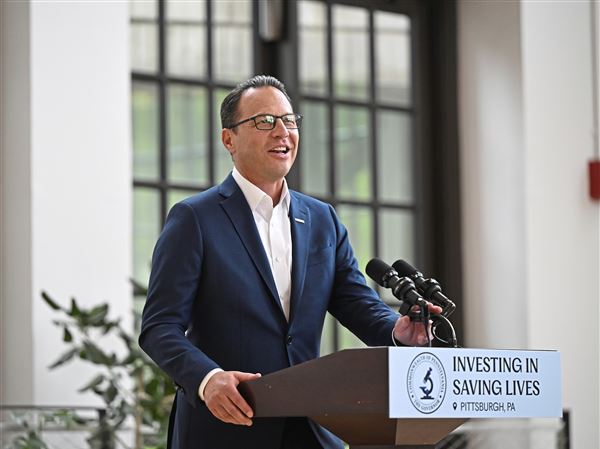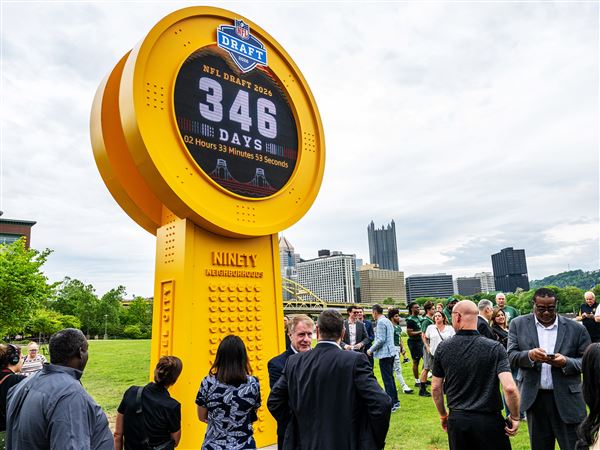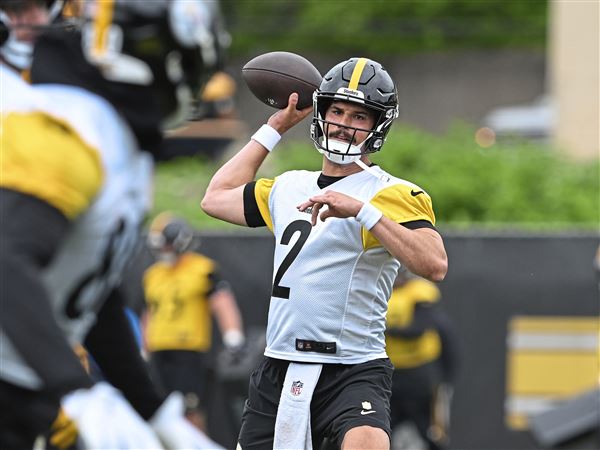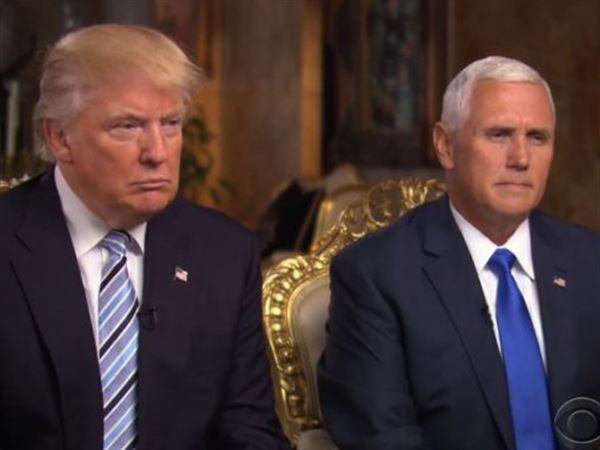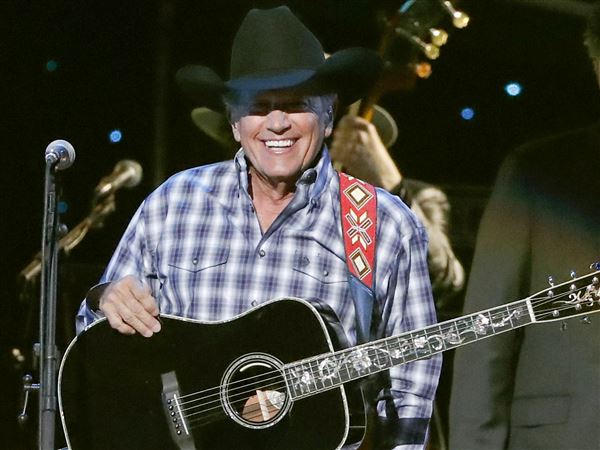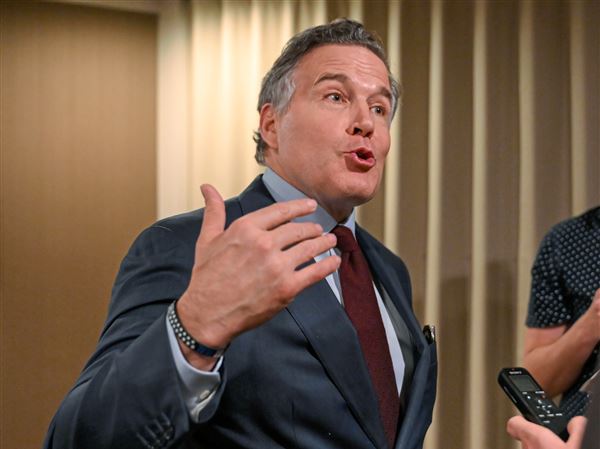His credentials as a journalist sent him around the world. His credentials as a member of Britain's educated class earned him a ticket to a world of celebrities from authors Salman Rushdie and Martin Amis to international figures such as Vaclav Havel.
Yet Christopher Hitchens -- the 62-year-old Washington, D.C.-based author, essayist and polemicist who died Thursday night at M.D. Anderson Cancer Center in Houston of pneumonia, a complication of his esophageal cancer -- made himself at home in Pittsburgh in the spring of 1997 as a fill-in at the University of Pittsburgh for his friend Colin MacCabe, a professor of English.
I wasn't sure why Mr. Hitchens would take this frankly obscure job in our flyover part of America. At that time, he wasn't the constant face on the talk shows he became in the 2000s after grabbing attention for his vocal support of the invasion of Iraq, a stance that alienated many people simply for its blatant contrariness.
The Mr. Hitchens I met in '97 was just "one of the guys" who enjoyed the company of fellow reporters whether they worked at the Post-Gazette or The New York Times. His eagerness to rub shoulders with the lowly drudges of Pittsburgh journalism led to a long lunch at a Bloomfield tavern one chilly damp spring afternoon.
His requirements were simple: the right to smoke and to drink.
So, as we American reporters sipped our artificially sweetened ice tea and picked daintily at salads, Hitch polished off two shots of Johnnie Walker Black Label before ordering a glass of merlot and an order of ribs with fries.
Between slugs of wine and drags on his British cigarettes, he commanded the table. There were a half-dozen of us hanging on his comments, delivered in that British accent that was to become a familiar sound on the Sunday morning TV programs.
I'm not sure what we talked about, although certainly Bill and Hillary and the Balkans were among the topics du jour, definitely not the Steelers or Pitt basketball.
Two hours and at least three more glasses of wine later, Mr. Hitchens announced he must return to the university to prepare for a dinner. We arose to leave, but our guest was seemingly stuck to his chair. We helped him to his feet and guided him along the uneven Bloomfield sidewalk to the car, but the stream of words never stopped.
I encountered Mr. Hitchens several times that spring, including a visit to a graduate seminar he was teaching on American literature where we disagreed about Fitzgerald and Lewis, but good-naturedly.
A year later, he returned to Pitt for a joint speech with Gore Vidal, but his longtime pal never showed up. Undaunted, Mr. Hitchens delivered an hour's worth of commentary and took questions. I suspect he knew Mr. Vidal had little intention of going to Pittsburgh and used the opportunity to enjoy himself.
Since that time, I've called Mr. Hitchens at his Washington, D.C., home for help on things I was writing. He always remembered me and was generous with his time, further proof that he was unfailingly polite, unpretentious and helpful.
The last time we met was Oct. 5, 2004, as part of a publicity stunt for Mr. Hitchens' friend, Bernard-Henri Levy, a French gadfly and provocateur who was supposedly retracing fellow countryman Alexis de Tocqueville's 1831-32 tour of America for a documentary.
Their intention was to harass Henry Kissinger as he spoke to the Pittsburgh Speakers Series program at Heinz Hall. A local weekly had invited Mr. Hitchens and screened "The Trials of Henry Kissinger," his documentary attacking the former secretary of state, the same night he spoke.
The Anglo-French team was ejected from Heinz Hall along with its film crew and repaired to a bar at 10th Street and Liberty Avenue to appraise its futile efforts. Mr. Hitchens was his courteous, friendly self, clearly enjoying this lark and his brief return to the city.
It was all in good fun. The incident later would be retold with embellishments in Mr. Levy's book, "American Vertigo," two years later.
Christopher Hitchens was a memorable person for many reasons, most of which will be highlighted in his obituaries. What I and others who met him in Pittsburgh will remember, however, was his openness, generosity and capacity to appreciate people.
First Published: December 17, 2011, 10:00 a.m.
